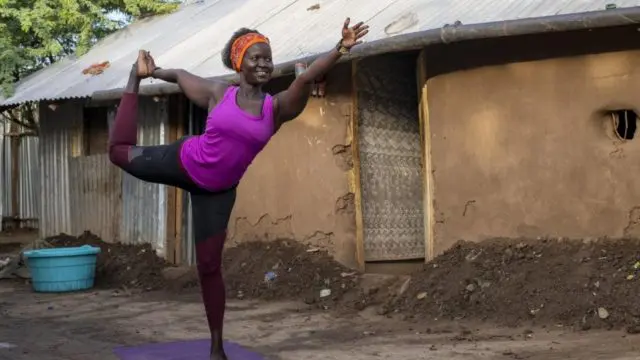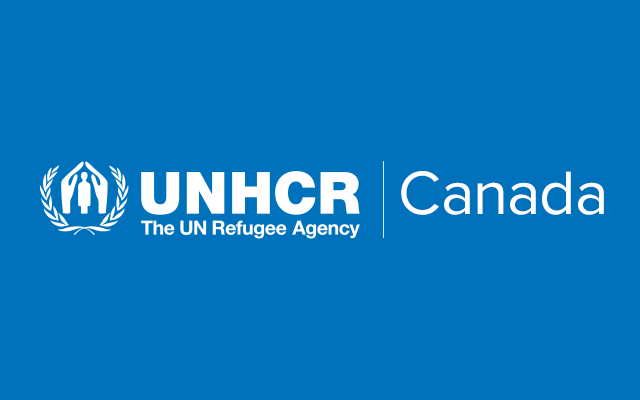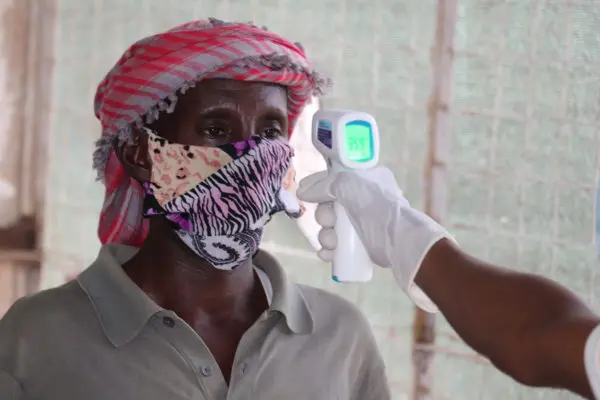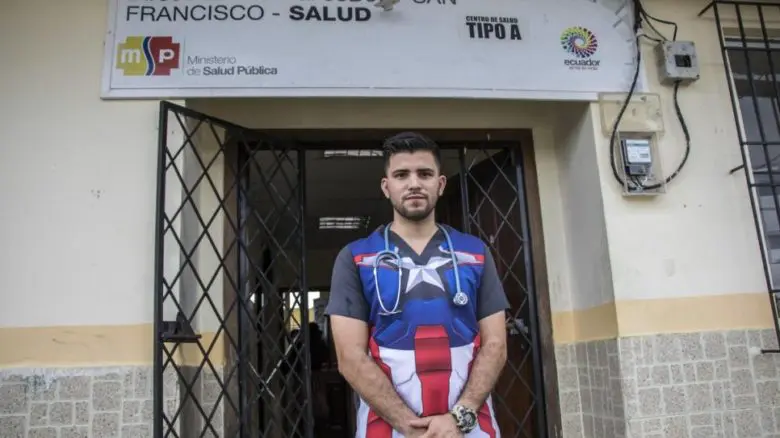
Venezuelan doctor Samuel Suárez is taking part in the public health response to coronavirus in San Francisco, a remote village in Ecuador. © UNHCR/Jaime Giménez Sánchez de la Blanca
Amid the pandemic, refugees stepped up to provide healthcare, boost wellness, safeguard their communities and keep us inspired during lockdowns.
By UNHCR staff
For most people, 2020 cannot end soon enough. The COVID-19 pandemic has killed nearly 1.8 million people and caused extreme hardship. As the year comes to an end and vaccinations begin, many are hopeful the virus can be contained. But the socioeconomic effects of the pandemic could be felt for years – especially in the world’s least developed countries, where most of the world’s forcibly displaced people live.
But at UNHCR, the UN Refugee Agency, we are hopeful. Forcibly displaced people around the world, many of whom have endured unthinkable losses, have shown us what it means to be resilient, and what it takes to overcome a crisis.
Here are five ways they inspired us in a year like no other:
1. The frontline response
In early March, even before COVID-19 was declared a pandemic, Venezuelan doctor Samuel Suárez was already giving at-risk Ecuadorians in rural areas lifesaving tips to avoid infection, and has continued to serve. In Iran, Afghan refugee doctor Fezzeh Hosseini has worked tirelessly to help local and Afghan patients affected by the virus, providing information and tips to stay safe. In Bangladesh, trained community health workers – all of them Rohingya refugees – reached out across the world’s largest refugee camp to refer suspected COVID-19 patients to health clinics.
2. Making soap, masks and medical equipment
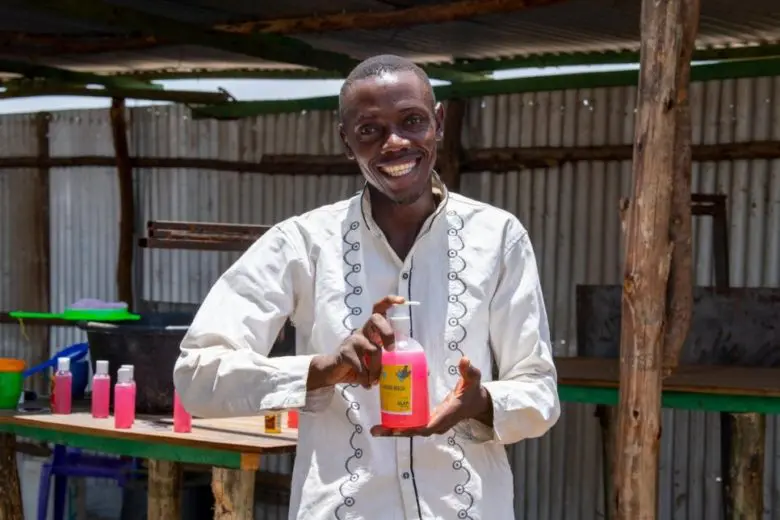
Innocent Havyarimana, a Burundian businessman, holds a bottle of freshly-made hand sanitiser, which he sells to fellow refugees, aid workers and Kenyans in Kakuma camp, Kenya. © UNHCR/Samuel Otieno
At a refugee camp in Kenya, Burundian refugee entrepreneur Innocent Havyarimana made soap and offered it at affordable prices. In neighbouring Somalia, 24-year-old returned refugee Fardowsa Ibrahim signed up for a tailoring course, never imagining that six months later, she would be making face masks to help protect people from infection. In Mexico, refugees joined the workforce at a firm making specialized washing machines to keep Latin America’s first responders safe.
3. Boosting mental health and wellbeing
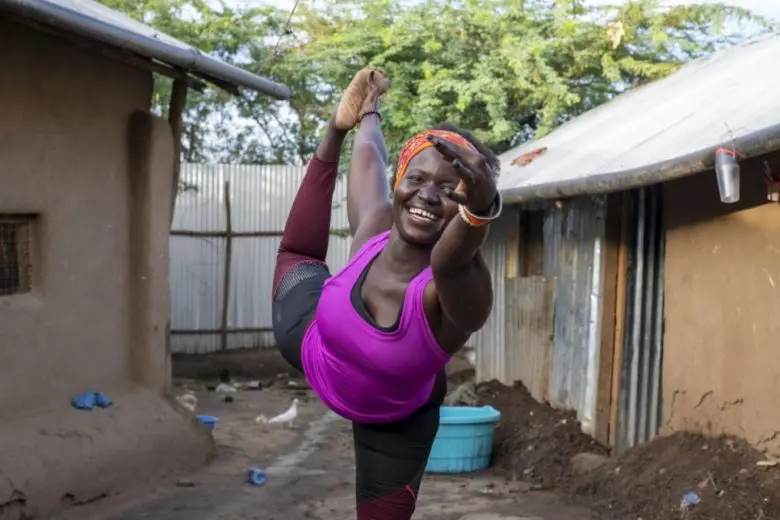
Rita Brown, a Ugandan refugee and yoga instructor, strikes a yoga pose in her compound in Kakuma camp, Kenya. © UNHCR/Samuel Otieno
Amid deepening economic hardship and lengthy lockdowns, mental health problems worsened. Refugees responded by seeking to boost mental and physical wellbeing. In Peru, Venezuelan counselors offered fellow refugees ‘psychological first aid’ through remote sessions to help them cope in the coronavirus pandemic. In Iraq, trained refugee community workers took mental health services to locked down camps. And in Kenya, Ugandan refugee and yoga instructor Rita Brown took her classes online to promote self-acceptance and mental wellbeing among refugees, both in Kenya and beyond.
4. Keeping their communities safe
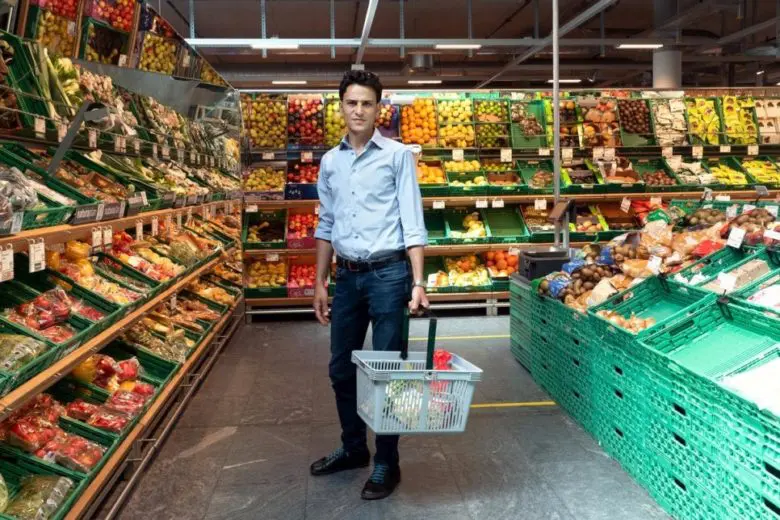
Shadi Shhadeh shops at a supermarket in Geneva, Switzerland. With fellow Syrian refugee volunteers, he delivers food and supplies to vulnerable people who are shielding from the coronavirus. © UNHCR/Elisabet Diaz Sanmartin
As the elderly and unwell self-isolated, Shadi Shhadeh and others in the Syrian refugee community in Switzerland provided a vital bridge to the outside world for vulnerable people in greatest need. Shadi mobilized a volunteer network to shop and run errands for the elderly, the infirm and others at risk. The drive, to ensure that no-one was left behind, was mirrored in volunteer and community outreach activities by refugees around the world.
5. Entertaining and educating in lockdown
As lockdowns forced everyone to search for something to do, refugees provided entertainment and inspiration. In India, refugees joined voices in a song of hope and kindness. Mentored by Grammy winner Ricky Kej, the 24 refugee musicians came together for ‘Shine Your Light’ – a song, performed in four different languages (English, Dari, Farsi, and Pashto) that invited listeners to celebrate our shared humanity. As the year drew to a close, refugees from all over the world who now call Canada home, shared their stories and favourite recipes in ‘Tastes from Home: Recipes from the Refugee Community’ – a free e-cookbook.
Their strength, creativity and dedicaction give us hope for 2021.
Originally published by UNHCR on 31 December 2020.



